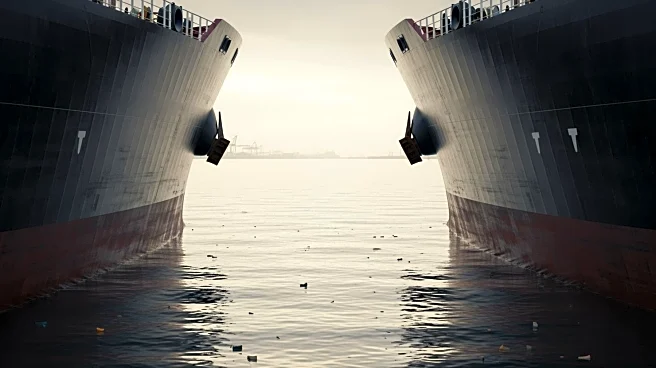What's Happening?
The Democratic Republic of Congo has announced new regulations to revoke cobalt export quotas from companies that fail to meet allocated volumes or breach environmental and tax rules. This move comes as Congo resumes cobalt exports under a new system following a months-long ban aimed at controlling oversupply and influencing global prices. Major producers like China's CMOC and Glencore have secured significant quotas, while other companies face strict compliance requirements.
Why It's Important?
Congo's decision to enforce cobalt export quotas is crucial for the global electric vehicle industry, which relies heavily on cobalt for battery production. The 'use-it-or-lose-it' regime could disrupt supply chains if companies fail to comply, potentially affecting production costs and availability of electric vehicles. This regulatory change underscores Congo's strategic role in the global cobalt market and its impact on international trade dynamics.
What's Next?
Companies operating in Congo will need to ensure compliance with the new regulations to avoid losing their export quotas. This may involve increased investment in environmental and tax compliance measures. The global market will closely monitor the situation, as any disruptions could lead to price fluctuations and supply chain challenges. Stakeholders may seek alternative sources or negotiate new agreements to mitigate risks.
Beyond the Headlines
Congo's assertive stance on cobalt exports highlights broader geopolitical and economic implications. As a key player in the critical minerals sector, Congo's policies can influence global market trends and drive discussions on sustainable mining practices. This development may prompt other countries to reevaluate their resource management strategies and explore collaborative approaches to ensure stable supply chains.








